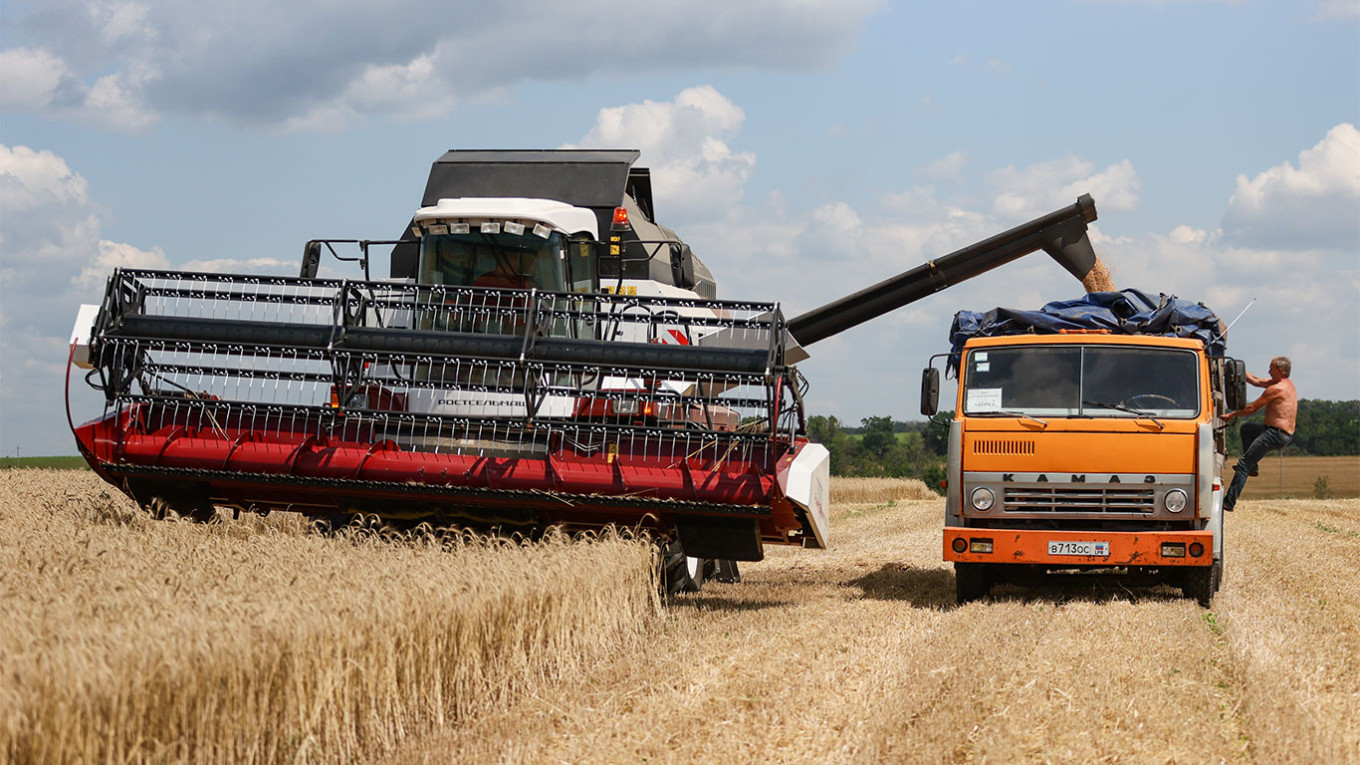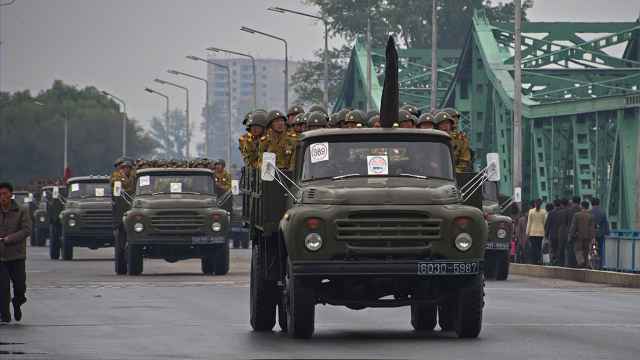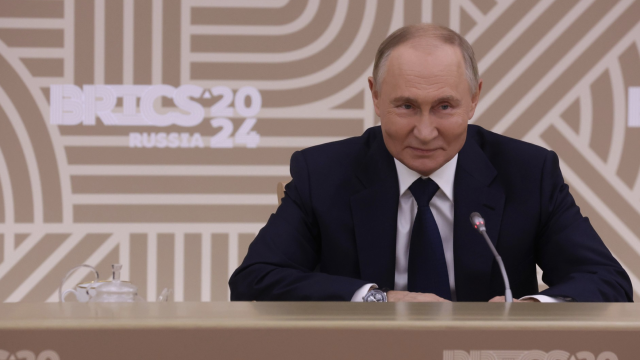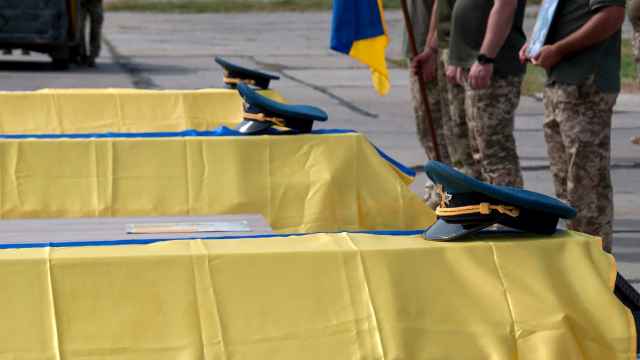The scale of Russian grain theft in occupied Ukraine likely constitutes the war crimes of starvation and pillage, a new report by the Global Rights Compliance legal practice has said.
Russia’s billion-dollar operation — which involved seizing Ukrainian grain storage facilities, building new railways, and transferring huge cargo ships to Black Sea ports both before and during Moscow’s full-scale invasion — enabled occupying forces to steal up to 12,000 tons of grain a day, The Hague-based NGO said.
The systematic targeting of Ukraine’s grain-rich southern regions and the involvement of sanctioned, Kremlin-linked figures is further evidence of preparations to use stolen Ukrainian grain to fund Russia’s war, the authors of the report argued.
“This report thoroughly documents the seizure and pillage of Ukrainian grain and agricultural infrastructure by Russian and affiliated actors, as part of a sophisticated pre-planned effort to abstract resources from Ukraine and profit from illegal extraction,” Naomi Prodeau, an adviser at Global Rights Compliance, told The Moscow Times.
In a hearing this September, Ukrainian politician Anton Korynevych accused Russia of genocide on multiple charges. He told The Hague that Russia had “held hostage” millions of tons of grain.
“It’s not just Ukraine that suffers from such terrible acts,” Korynevych said.
Agricultural products like wheat, barley and corn were among Ukraine’s largest pre-war exports. Much of this grain was destined for countries in the Sahel, the Horn of Africa, and Yemen, some of the world’s poorest regions.
Russia’s February 2022 invasion temporarily removed Ukraine from the supply chain, exacerbating an already severe food crisis in these countries.
In Luhansk and Zaporizhzhia, large storage plants called “grain elevators” have been re-registered to Russian businesses linked to state grain company OZK.
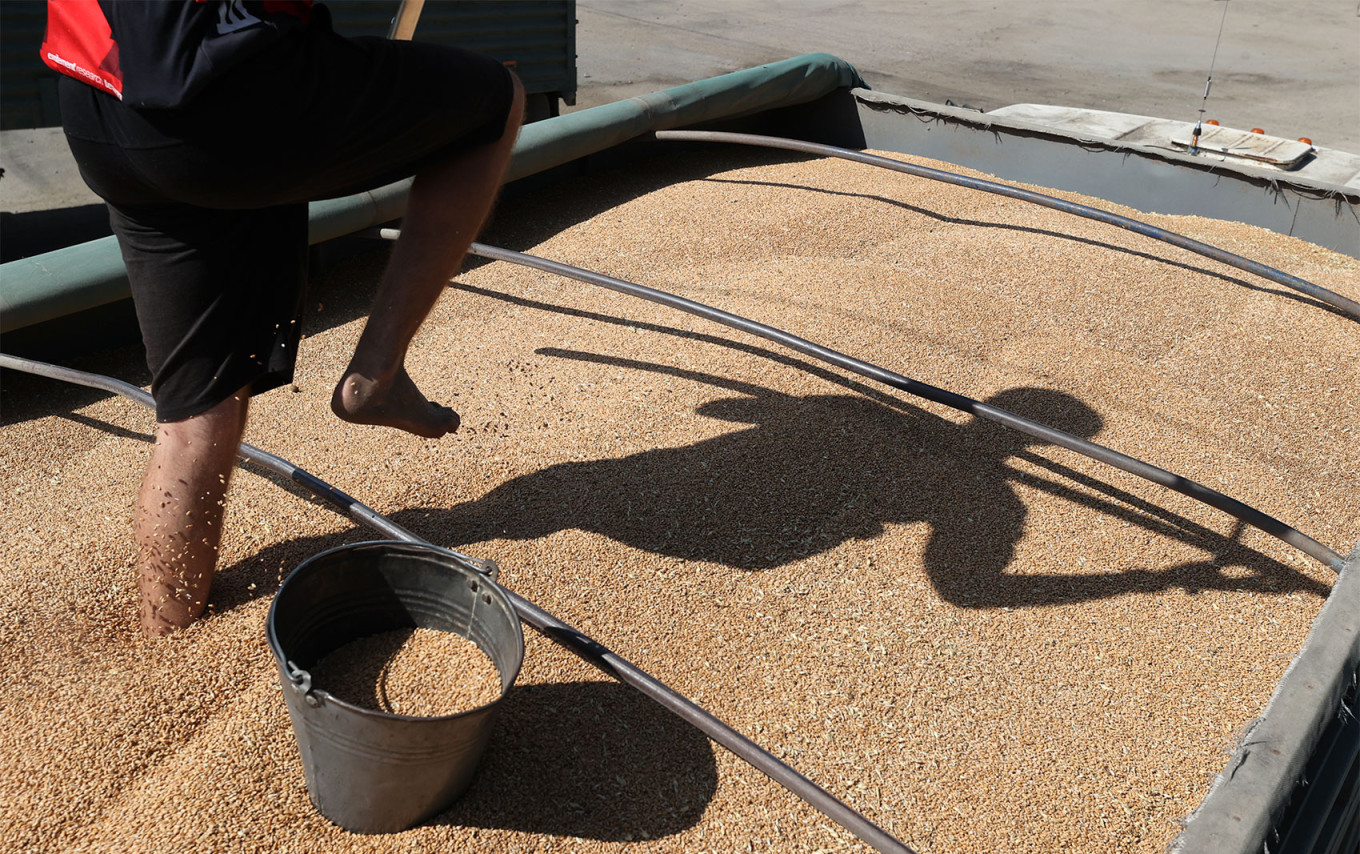
The United States sanctioned OZK and its director Nikita Busel in February 2023 for their role in redirecting Ukrainian grain to Russia.
Railways linking occupied Luhansk with the Russian city of Rostov-on-Don have been rebuilt, enabling stolen grain to travel overland.
The leader of the self-proclaimed Luhansk People’s Republic, Leonid Pasechnik, appears to have been closely involved. A video from June 2022 shows him overseeing the departure of a goods train from the Starobilsky grain hub. Customs officials tagged the 13-wagon train bearing 650 tons of Ukrainian grain as it left for Rostov.
Personal intrigues have also rocked Ukraine’s troubled grain sector. Oleksiy Vadaturskyi, the head of one of Ukraine’s largest agricultural holdings, Nibulon, was killed alongside his wife in August 2022 when an S-300 missile struck their house in Mykolaiv.
At the funeral, Vadaturskyi’s son told reporters that he believed the strike was deliberate. Russia denies targeting civilians.
Ukrainian farmers first reported grain thefts in March 2022, but there is evidence that plans for mass transit of plundered grain by sea began before the invasion.
Sanctioned Russian firm Crane Marine Contractors (CMS), which normally supplies platforms to the gas industry, bought two large grain ships in December 2021.
The Matros Koshka and her sister ship the Mikhail Nenashev are both large enough to transport a hefty 300,000 tons of wheat — yet, crucially, still small enough to dock in the port of Avlita in Sevastopol, annexed Crimea.
The firm purchased a third ship, the Matros Posynich, just two days before Russia’s full-scale invasion.
All three ships visited Turkish ports in 2022, and the Matros Posynich has also been spotted in Syria. The vessels often appear “dark” on ship-tracking software, a common giveaway in maritime smuggling operations.
“It’s important to emphasize that this is a premeditated effort, which has a precedent,” Maximilian Hess, a consultant and the author of “Economic War: Ukraine and the Global Conflict between Russia and the West,” told The Moscow Times.
“Following the annexation of Crimea in 2014, Russia seized Ukrainian territory, companies and ports — but even before the full-scale invasion, we saw the Kremlin increasing grain production and grain trading in the country, to use as a weapon of international pressure,” he said.
Crimea’s ports were key strategic sites in Russia’s 2022 attack. Grain was also brought to the annexed peninsula by road, as the new report highlights. GPS trackers show farmers’ stolen trucks driving through Crimea and into Russia.
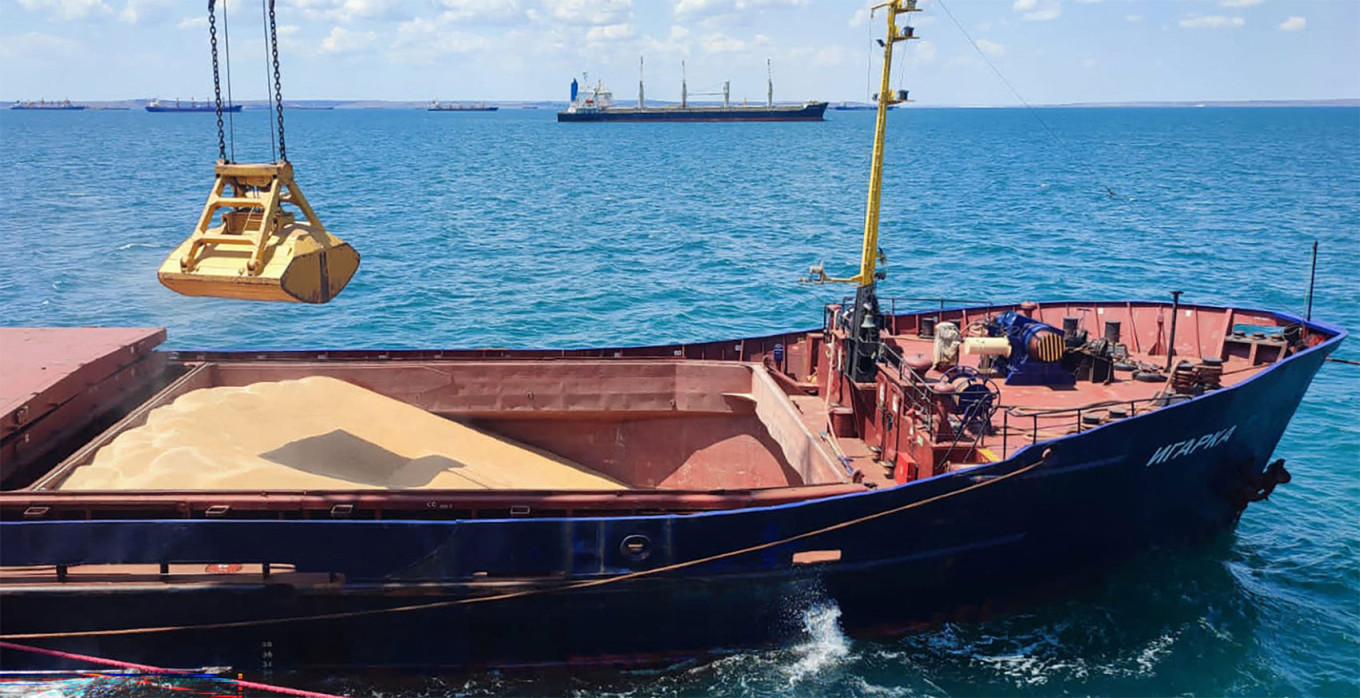
Investigators analyzed job adverts posted on Telegram by Russian logistics companies and found that Russia struggled to find enough drivers to transport the Ukrainian grain.
“These aren’t just violations of commercial law — they are crimes of war,” Hess said. “The Kremlin is only able to continue with the support of international buyers who are willing to purchase this grain.”
Lawyers at Global Rights Compliance measured the new findings against international human rights law.
The act of pillage — “the forcible taking of property by an invading or conquering army from the enemy’s subjects” — is prohibited under both Russian and international law.
Since the majority of captured grain facilities were owned by private Ukrainian companies like Nibulon and Agrotron, there is strong evidence that the war crime of pillage was committed, the NGO said.
“Starvation” is also banned as a method of warfare, but this crime is much harder to prove.
The Geneva Convention condemns “destroying, or rendering useless objects indispensable to the civilian population ... to starve out civilians, or for any other motive.”
In the context of the “starvation” charge, the report’s authors argued that the “civilians” title should be applied to the people in the African and Middle Eastern countries affected by Russia’s deliberate withholding of Ukrainian grain at the start of the war.
As the majority of the stolen grain was meant for export, a future international prosecution of Russia would likely take this approach.
Russia’s conduct “constitutes a war crime under international law,” Prodeau said. “This evidence must be used to hold all public and private actors involved to account.”
The Moscow Times has approached the Ukrainian restoration ministry for comment.
A Message from The Moscow Times:
Dear readers,
We are facing unprecedented challenges. Russia's Prosecutor General's Office has designated The Moscow Times as an "undesirable" organization, criminalizing our work and putting our staff at risk of prosecution. This follows our earlier unjust labeling as a "foreign agent."
These actions are direct attempts to silence independent journalism in Russia. The authorities claim our work "discredits the decisions of the Russian leadership." We see things differently: we strive to provide accurate, unbiased reporting on Russia.
We, the journalists of The Moscow Times, refuse to be silenced. But to continue our work, we need your help.
Your support, no matter how small, makes a world of difference. If you can, please support us monthly starting from just $2. It's quick to set up, and every contribution makes a significant impact.
By supporting The Moscow Times, you're defending open, independent journalism in the face of repression. Thank you for standing with us.
Remind me later.



